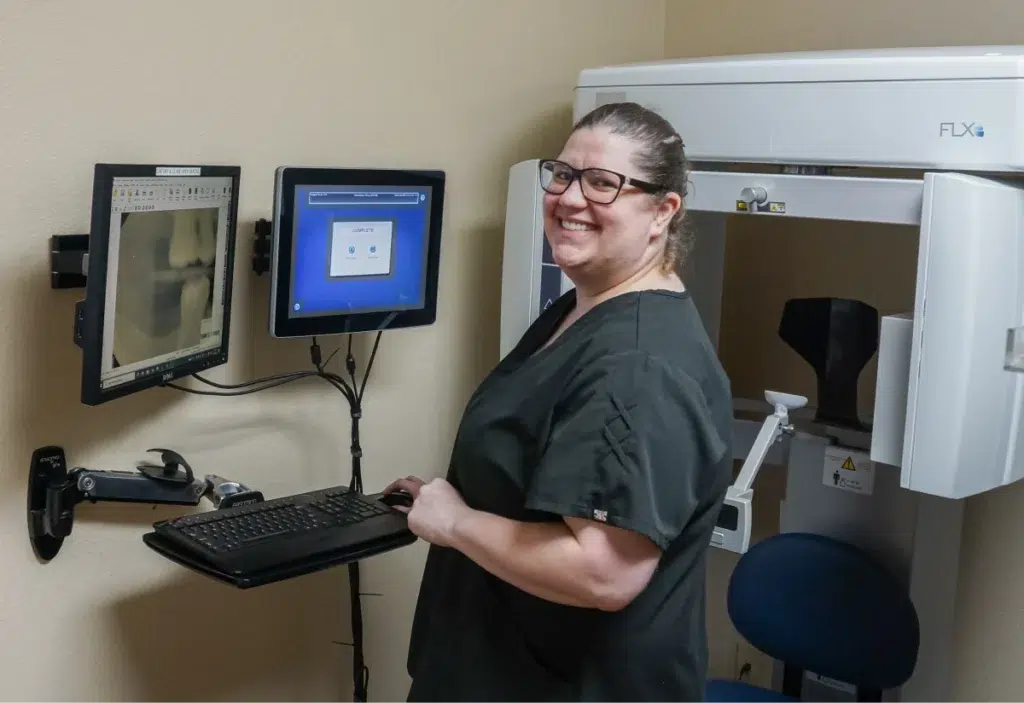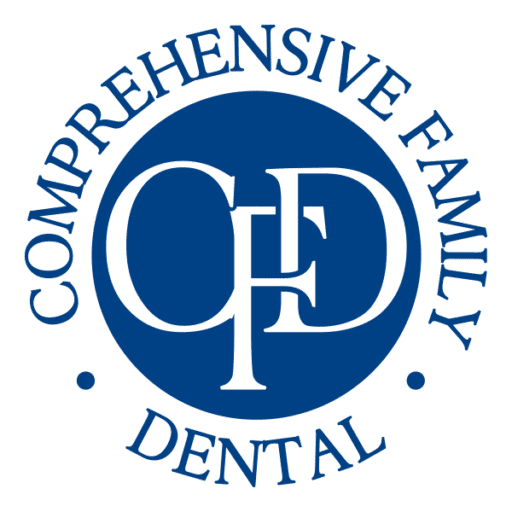TMJ disorders have been a cause of concern for many. It’s not just about the jaw pain but also the variety of symptoms that come along. But who treats TMJ? Where do you go when your jaw pain becomes unbearable? The answer is – a TMJ and facial pain trained dentist or doctor. In this article, we’ll bite into the world of TMJ specialists and explore their role in treating TMJ disorders!
What is TMJ?
TMJ stands for Temporomandibular Joint, the hinge joint that connects your jaw to your skull. When you have a TMJ disorder, you experience pain in your jaw joint and muscles that control jaw movement. The exact cause of a person’s TMJ disorder often remains unclear, with pain potentially arising from a combination of factors such as genetics, jaw injury or trauma, or arthritis.
TMJ Symptoms
The main symptoms of TMJ are tenderness in the jaw and facial pain, which may be more pronounced when speaking, chewing, or opening the mouth wide. This discomfort can be accompanied by a clicking or popping sound in the jaw joint, not always associated with pain, but often indicative of TMJ issues. Additionally, patients might experience headaches, ear pain, and a sense of discomfort or fatigue in the face, highlighting the condition’s impact on overall quality of life.
Furthermore, TMJ disorders can lead to difficulty in opening the mouth fully, creating challenges with eating and speaking. In some cases, there’s an uncomfortable locking of the jaw, either in the open or closed position, which can exacerbate the pain and discomfort. The symptoms can vary greatly in intensity and frequency, affecting one or both sides of the face. These varied symptoms necessitate a comprehensive approach to diagnosis and treatment, tailored to the individual’s specific condition and needs.

What is a TMJ Specialist?
A TMJ specialist, also known as a jaw doctor, is a healthcare professional who has specialized training and experience in diagnosing and treating TMJ disorders. These experts can be dentists or medical doctors who have acquired additional training and certification to manage the complex nature of TMJ disorders.
Role of a TMJ Specialist
The primary role of a TMJ doctor is to diagnose and treat TMJ disorders. To do so, they: listen and feel your jaw when you open and close your mouth, observe the range of motion in your jaw, and press on areas around your jaw to identify sites of pain or discomfort. If they suspect a problem, they may recommend: dental X-rays to examine your teeth and jaw, CT scan to provide detailed images of the bones involved in the joint, MRI to reveal problems with the joint’s disk or surrounding soft tissue, TMJ sonar analysis to view the area and help determine a diagnosis.
What Methods Are Used?
Treatment options for Temporomandibular joint disorders usually involve more than one method simultaneously. Below are a few treatments a TMJ doctor may recommend:
Medications
Medication options may help relieve the pain associated with TMJ disorders. These may include pain relievers and anti-inflammatories, bruxism control, and muscle relaxants to help relieve pain caused by muscle spasms.
Therapies
Therapies for TMJ disorders can range from oral bite splints or mouth guards to physical therapy, which includes exercises to stretch and strengthen jaw muscles, treatments with ultrasound, moist heat, and ice. Some patients may also benefit from a physical therapist or counseling to understand the factors and behaviors that may aggravate their pain.
Surgical or Other Procedures
For some, oral and maxillofacial surgeons may be required to do operations. These may include arthrocentesis, injections, TMJ arthroscopy, modified condylotomy, or open-joint surgery. However, the decision for surgery should be taken after discussing the potential benefits and risks, and exploring all other TMJ treatment options.
Alternative Medicine for TMJ Relief
Complementary and alternative medicine techniques may help manage the chronic pain often associated with TMJ disorders. Some of these techniques include acupuncture, relaxation techniques, and biofeedback.
Lifestyle Changes and Home Remedies
Making changes to your lifestyle can significantly impact managing TMJ disorder symptoms. Some of these changes may include avoiding overuse of jaw muscles by making sure you eat soft foods and avoiding chewing gum, doing stretching and massage exercises, applying heat or cold to the side of your face to alleviate pain. Another measure you could apply is wearing a mouthguard at night to prevent teeth grinding.
Preparing for Your TMJ Appointment
If you’re planning to visit a TMJ specialist, prepare a list of questions to ask. Be open and honest about your symptoms, discuss any pain you’re experiencing, and don’t hesitate to ask about all treatment options. Remember to be your own health care advocate.
TMJ Treatment at Comprehensive Family Dental
At Comprehensive Family Dental, our TMJ specialists are committed to providing you with the best care. We understand the challenges of TMJ disorders and are here to help you navigate this journey. So, if you’re ready to find relief from your TMJ pain, contact us today and let’s start your road to recovery together.

Wrapping Up
Jaw pain can be debilitating, affecting your daily life and well-being. Finding a skilled TMJ doctor is the first step to managing and treating your symptoms. Remember, you don’t have to live with the pain, and help is just around the corner.
Frequently Asked Questions
Who treats TMJ disorders?
The best doctor to see for TMJ depends on the nature and severity of your symptoms. Dentists, especially those specializing in oral and maxillofacial treatments or trained in TMJ and facial pain, are often the primary care providers for TMJ disorders due to their expertise in the mechanics of the jaw. For more complex cases, a multidisciplinary team approach involving ENT specialists, neurologists, pain specialists, or physical therapists may be recommended.
Who should I go to if I have TMJ?
If you suspect you have TMJ, visiting a dentist, particularly one who specializes in TMJ disorders, is a good starting point. They can offer initial diagnosis and treatment options.
Is TMJ a medical or dental problem?
TMJ is often considered both a medical and dental problem. It primarily involves the temporomandibular joint, which impacts jaw function and oral health, making it a significant concern for dental professionals. However, because TMJ disorders can also cause symptoms affecting overall health, like pain and discomfort extending beyond the jaw, medical professionals may also be involved in its treatment.
